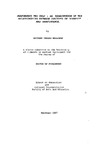PERFORMING THE SELF : AN EXAMINATION OF THE RELATIONSHIPS BETWEEN CONCEPTS OF IDENTITY AND PERFORMANCE
| dc.contributor.author | WELLINGS, MATTHEW THOMAS | |
| dc.contributor.other | Faculty of Arts, Humanities and Business | en_US |
| dc.date.accessioned | 2013-11-04T12:55:54Z | |
| dc.date.available | 2013-11-04T12:55:54Z | |
| dc.date.issued | 1997 | |
| dc.identifier | NOT AVAILABLE | en_US |
| dc.identifier.uri | http://hdl.handle.net/10026.1/2570 | |
| dc.description | Merged with duplicate record 10026.1/794 on 27.03.2017 by CS (TIS) | |
| dc.description | Merged with duplicate record 10026.1/794 Submitted by Collection Services (collectionservices@plymouth.ac.uk) on 2011-09-29T13:25:40Z No. of bitstreams: 1 360474.pdf: 15160704 bytes, checksum: 40f848ae83a87ccb4f31120a1961019e (MD5) Approved for entry into archive by Collection Services(collectionservices@plymouth.ac.uk) on 2011-09-29T13:25:58Z (GMT) No. of bitstreams: 1 360474.pdf: 15160704 bytes, checksum: 40f848ae83a87ccb4f31120a1961019e (MD5) Made available in DSpace on 2011-09-29T13:25:58Z (GMT). No. of bitstreams: 1 360474.pdf: 15160704 bytes, checksum: 40f848ae83a87ccb4f31120a1961019e (MD5) Previous issue date: 1997 | |
| dc.description.abstract |
This thesis sets out to examine the idea that self-identity can be coherently viewed as a performance event. If such a proposition is supportable, it would seem to argue for attention to be paid to the nature of the activity of performing as a means to better understanding the processes of human identity. Beginning with an analysis of an early example of such a theoretical position, this thesis examines some of the central issues involved in viewing the self as performative. The agenda dictating the direction of this analysis can be summarised as an effort to provide a model of the performative self that is affirmatory rather than negative; that establishes it as a positive, rather than debilitating, fact of existence. The construction of this model is achieved in large part by the adoption of the ontological outlook contained in the philosophy of Frederich Nietzsche which, it is argued, offers a reading of the nature of human identity that avoids the sometimes reductive elements of more contemporary theories such as post-structuralism. Allied to this elaboration of a theoretical model of the self is the recognition that the theory produced within and around radical theatre practice in the West over the last century can be seen as a field of activity that has consistently argued for, and experimented with, new conceptualisations of the constituent factors of human social identities. Because of this, such theatre writings are proposed as being genuinely potent political activities; ones which continuously seeks to extend, rather than reduce, the sphere of influence of individuals in society. The contribution this thesis makes to research in the field of theatre studies, then, is in the provision of a theoretical framework within which it becomes possible to see radical theatre as a paradigmatic site of liberatory activity. | en_US |
| dc.language.iso | en | en_US |
| dc.publisher | University of Plymouth | en_US |
| dc.title | PERFORMING THE SELF : AN EXAMINATION OF THE RELATIONSHIPS BETWEEN CONCEPTS OF IDENTITY AND PERFORMANCE | en_US |
| dc.type | Thesis | en_US |
| plymouth.version | Full version: final and full version as approved by the examiners at the time of the award of your degree | en_US |
| dc.identifier.doi | http://dx.doi.org/10.24382/1369 |
Files in this item
This item appears in the following Collection(s)
-
01 Research Theses Main Collection
Research Theses Main


